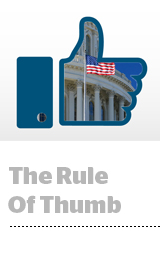 Facebook introduced its political advertising archive and updated transparency policies to the US on Thursday after testing them in other countries, including Canada, Britain and Kenya.
Facebook introduced its political advertising archive and updated transparency policies to the US on Thursday after testing them in other countries, including Canada, Britain and Kenya.
Moving forward, all electoral and issue-based ads on Facebook or Instagram will be archived and will have a “paid for by” disclaimer, which prevents political advertisers from promoting content under throwaway or misleading page names, and the archive will include campaign information such as budget, audience reach and demographics.
Facebook’s main problems are defining what content qualifies as issue activism and how to parse out political actors operating numerous, obscure pages.
When Facebook announced its plans to update political ad policies in October, the idea was to target politicians and political parties explicitly promoting campaign candidates.
“Just looking at ads from candidates on either side was not enough,” said Katie Harbath, Facebook’s global politics and government outreach director, on a press call. After all, the Russian-backed ads during the 2016 election promoted discord and hot-button issues but not a specific candidate, she said.
Facebook’s machine learning tools could scour images and text for content promoting candidates, but it’s more difficult to split electoral activism from straightforward news or commentary on issues like gun control, abortion and infrastructure, three of the initial 20 categories that can qualify content as political under Facebook’s transparency policy.
When Facebook updated its political transparency policy in April to include issue-based ads, it rattled some publishers because coverage of hot-button news might have a harder time finding revenue or may be required to be labeled as advocacy.
Facebook is working on a solution with publishers, said public policy director Steve Satterfield.
Fundraising ads “will very likely require labeling” in the future, Satterfield said, and will end up in the political advertising archive. But Facebook must first find a way to distinguish some fundraising calls, such as a GoFundMe page to cover an immigrant family’s legal cost, from fundraising appeals on the same topic by political groups.
Parsing out sincere news from political interests masquerading as “media pages” isn’t the only cat-and-mouse game Facebook will still be playing with bad actors.
Candidates and advocacy groups spend a lot on Facebook to match large email databases to Facebook’s user list to drive traffic to a separate landing page – skirting Facebook’s political ad crackdown.
The company will hire 3,000 to 4,000 people this year specifically to monitor and evaluate potential electoral advocacy, but Facebook is also “asking for people’s help,” relying on users to flag political ads and posts, said Rob Leathern, director of product management.
Political advertisers and digital media consultants from both sides of the aisle agreed Facebook’s political policy proposals will dampen the platform’s political ad revenue, especially if it shuts down ad spend by self-serve political buyers hoping to remain anonymous.
The effect on ad revenue isn’t the main focus, Harbath said. It’s more important for users to feel comfortable and understand who’s trying to share messages with them and who’s paying for the media.
Facebook won’t be making money on political advertising this year, she said, factoring in the investments in time and the thousands of employees specifically assigned to political monitoring hired this year, but “the cost is worth it on that.”
This post was syndicated from Ad Exchanger.

More Stories
Trifecta for OMD at Cannes Young Lions 2024
Ogilvy Names Rafael Rizuto Chief Creative Officer for North America
NZME podcast Sex.Life hits 1 million downloads